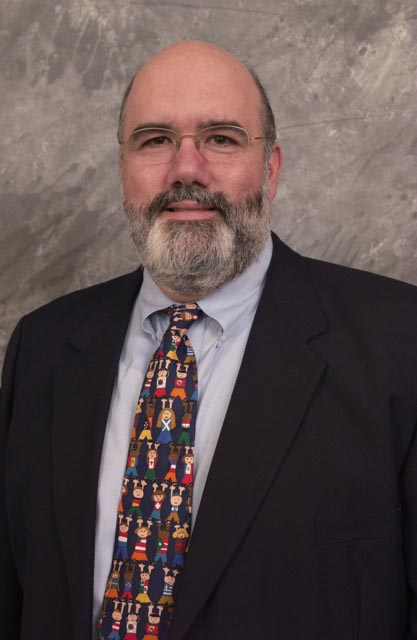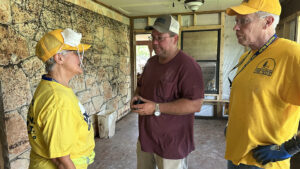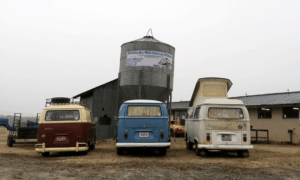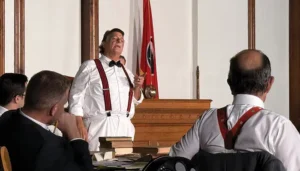
FORT WORTH, Texas (BP)–After Hurricane Katrina struck, teams of firefighters rushed to New Orleans from as far away as Illinois and New York City and moved into temporary camps in Baton Rouge. Hardened veterans and wide-eyed rookies alike went about the essential but morbid task of removing dead bodies, cleaning up rotting garbage and otherwise doing the dirty work of restoring the city. It was not easy: horrible sights and fetid smells were an everyday occurrence.
Among the confusion and sadness, volunteer chaplains came alongside the rescue workers to encourage, listen and pray with them. John Babler, associate professor of pastoral counseling at Southwestern Baptist Theological Seminary in Fort Worth, Texas, was one of these firefighter chaplains.
Babler has been chaplain to the fire department of the city of Edgecliff Village near Fort Worth for seven years and a member of the Federation of Fire Chaplains, which called on him to go to Baton Rouge Sept. 12, a week after the hurricane hit and when the flooding was starting to subside.
“We went around the firefighter camps and talked with them,” Babler said. “The term ‘ministry of presence’ is over-used — and often misapplied — but in this situation that is what my job really was.”
When firefighters engaged in rescue operations, Babler said some of them were seeing things that they had not seen before. One firefighter shared an account of going out with a police patrol. The patrol approached a man they thought needed help. The man brandished a firearm and started shooting at them. The police tried to calm him and negotiate with him, but for their own safety they ended up shooting and killing the man. The firefighter was clearly shaken by the event.
“We would sit with these guys and just listen to them,” Babler said. “Many of them have developed coping skills … but sometimes they are faced with realities that come down very hard on them.”
Red tape often made the firefighters’ work frustrating. Poor communication between state and federal relief agencies, false alarms, boredom and hurry-up-and-wait orders regularly hampered their best-intended efforts.
Concerns for families and jobs back home sometimes weighed just as heavily on firefighters and rescue personnel as it did on the people they were trying to help. Long hours were the norm; some firefighters worked for days without sleep.
Babler told of a locally based firefighter whose wife was housed in an apartment with 19 other people while he slept and worked from the fire station in Baton Rouge.
“The most important thing I can do is be a visible reference for Christ in the midst of crisis,” Babler said. “We listen, provide biblical encouragement, and sometimes we are able to present the Gospel to them.”
Babler said that one of the top items Christians should have on their prayer lists when they pray for fire and rescue workers is that they would enter into a personal relationship with Jesus Christ. To that end, Babler and other chaplains are there with firefighters, bringing a message of true hope and true sacrifice.
By the world’s standards, Babler said these are “good people.” But many of them are not church-goers. The nature of their work, their odd schedules (24 hours on, 48 hours off) and the camaraderie that comes from high stress and sacrifice all combine to create such a strong sense of community that firefighters do not feel any need to go to church, Babler said.
“Among firefighters, there is a real bond among brothers,” Babler said. “But all of them usually come to a point where they have to deal with issues of hope and the realities of what they see.”
–30–
















